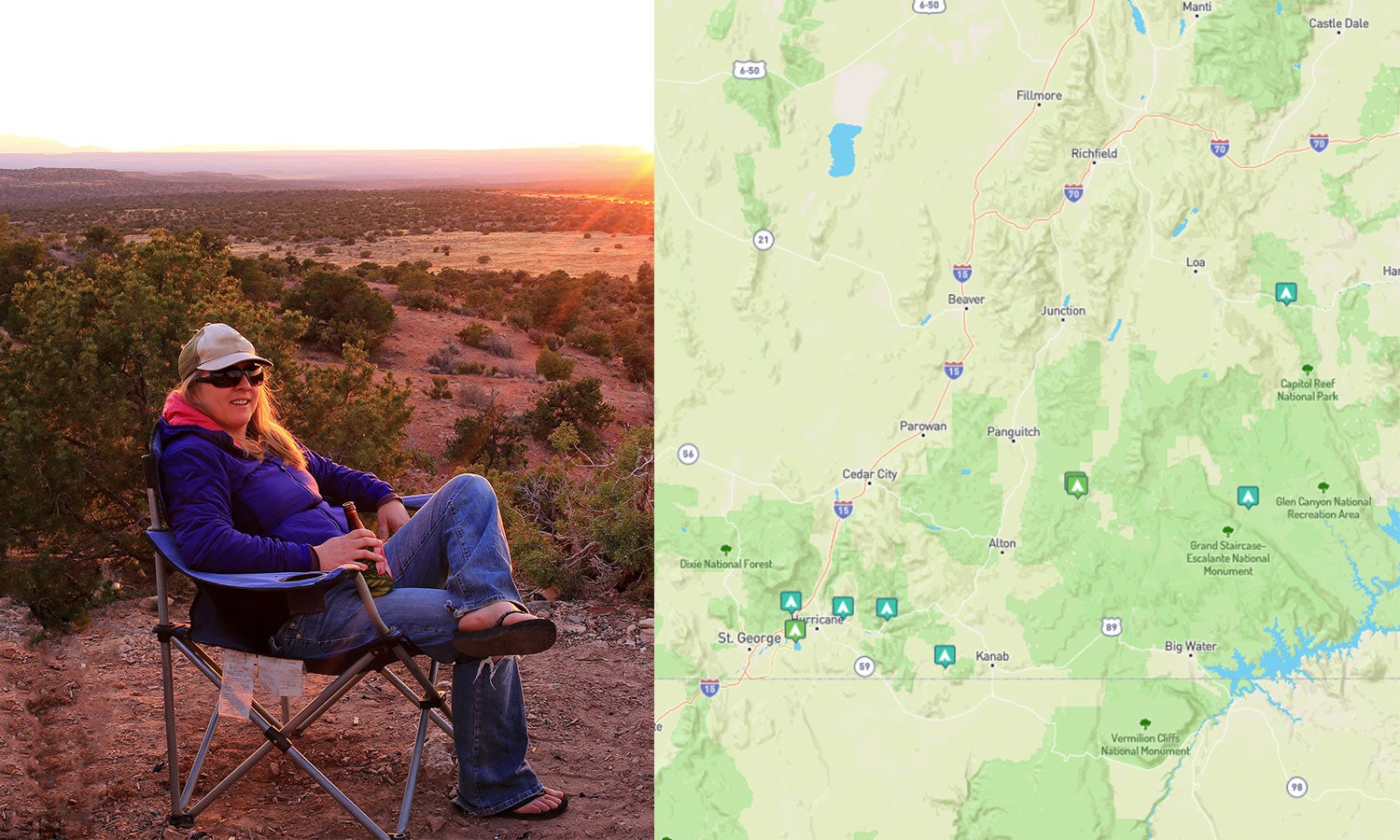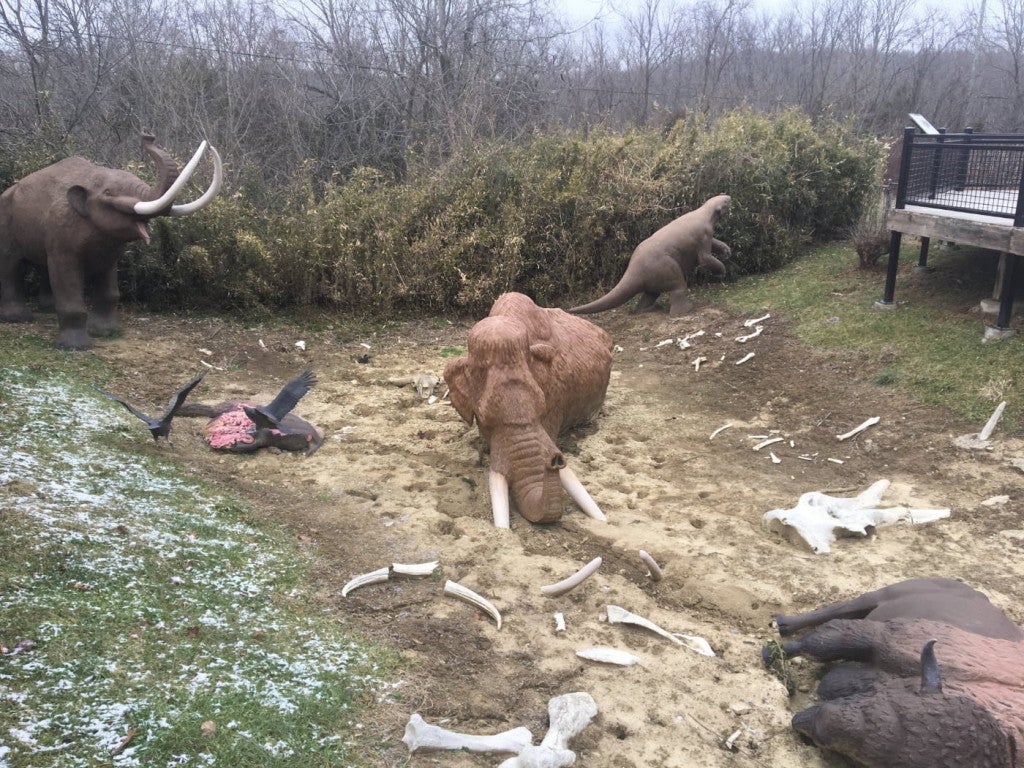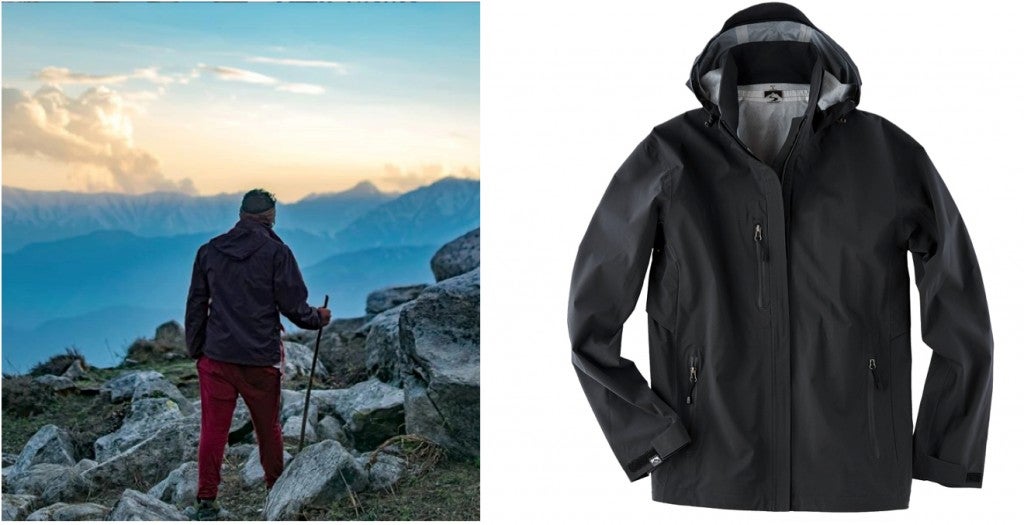Growing up in Central Oregon, my version of desert camping varied greatly from the desert seen when camping in southern Utah, the region I now call home. I grew up with tumbleweeds and cheatgrass and the short western juniper, and dust storms were far more likely than sandstorms, unless you were along the temperamental Oregon coastline.
The love I cultivated from living and exploring in Oregon’s High Desert has remained and deepened to a love of all desert environments–the arid, vast, suffocating expanse that reminds my soul that I am home.
In the southern reaches of Utah, snowbirds and winter-enthusiasts alike find respite in the 255 sunny days the red rock desert receives each year on average. With ample hiking, climbing, mountain biking, and sunbathing, you’ll want to pack up the kids and find camping in southern Utah surrounded by the cryptobiotic soil, sandstone arches, and uninterrupted swath of desert landscape. And who knows, you might fall in love with the desert, too.
What Makes Southern Utah Camping So Special?
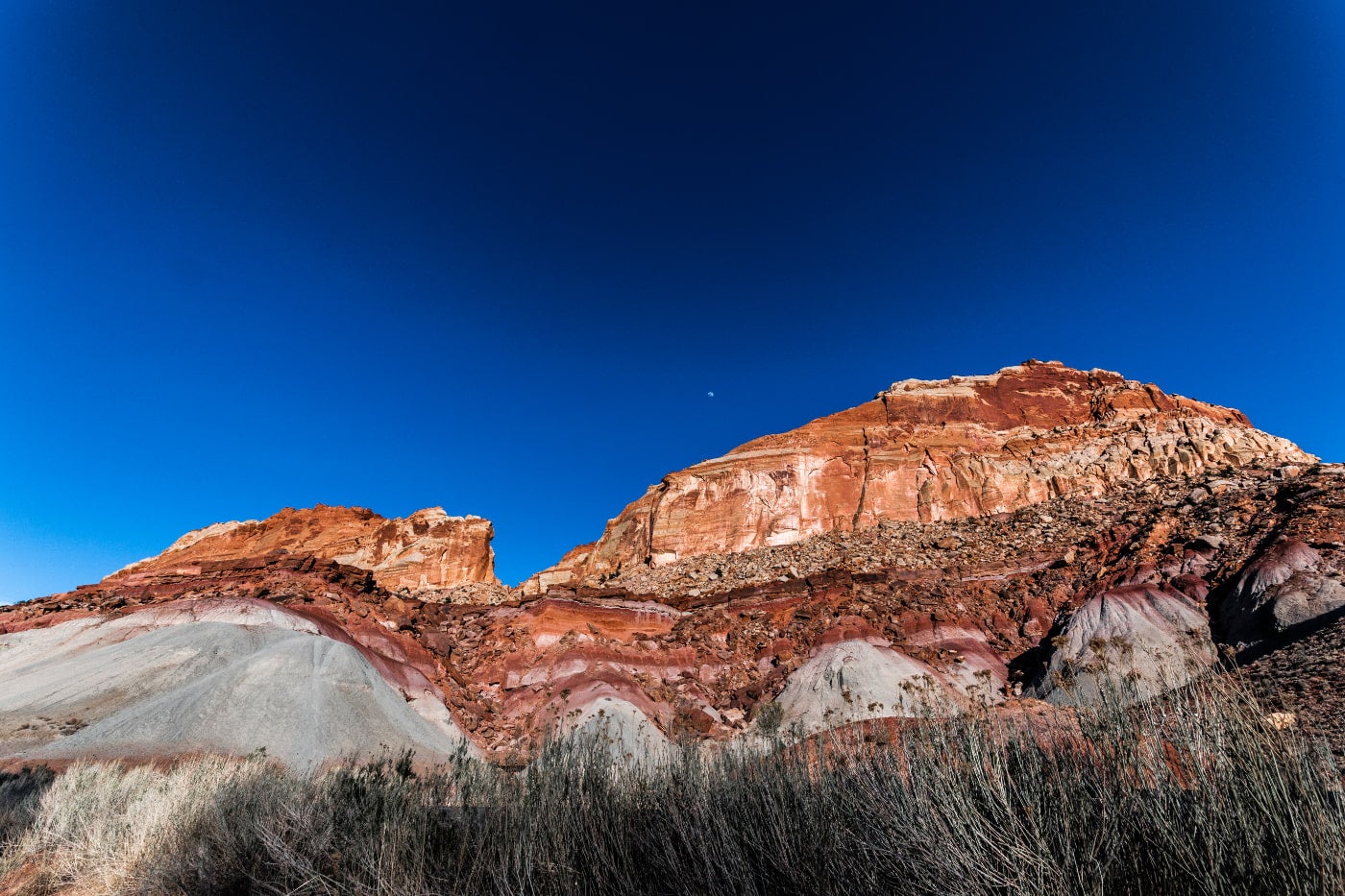
Image from The Dyrt camper Tim D.
You’ve probably heard of at least one of the “mighty five” national parks in southern Utah: Zion, Bryce Canyon, Arches, Capitol Reef, and Canyonlands. All exist within three hours of each other, and can be visited in one epic desert road trip.
For the uninitiated, southern Utah’s biological and natural diversity is far reaching: washes, canyons, arches, cacti, scorpions, towers, and actual rivers can all be found in the expanse of Utah’s desert. There are thousands of miles of hiking and dirt roads, and millions of acres of public land.
What might be most stunning about the desert, though, aren’t the iconic desert towers or impressive saguaro cactus, but what you feel while you’re there. An unfurling of the world before you. Stillness and emotion just shy of desperation–to be alive in a place where few things survive. Smallness under a star-speckled sky.
Southern Utah Camping is Best Done in the Off Season
While northern Utah can become sub-arctic during the off-season, winter camping in southern Utah becomes a playground for all outdoor enthusiasts. Despite the popularity of a summer road trip through the state, the summer months can make the desert less appealing than it sounds. Temperatures reach well into the triple digits, and hiking in any of the national parks or surrounding public lands can become crowded, dangerous and even deadly if you aren’t prepared.
In the winter, though, temperatures drop to 40-70 degrees depending on where you visit, making slot canyons and popular hikes far more enjoyable. You won’t have to worry about winterizing your RV, and your solar panels will have plenty of sun to run your TV, microwave, and camera (you’ll need it!).
10 Perfect Spots for Camping in Southern Utah Year-Round
Due to the temperate weather, many campgrounds in southern Utah are open year-round, making them a great home base for warm mid-winter adventure. Always check the weather report before booking, though, as some areas can fall below freezing once the sun sets.
1. Sand Hollow State Park — near Zion National Park
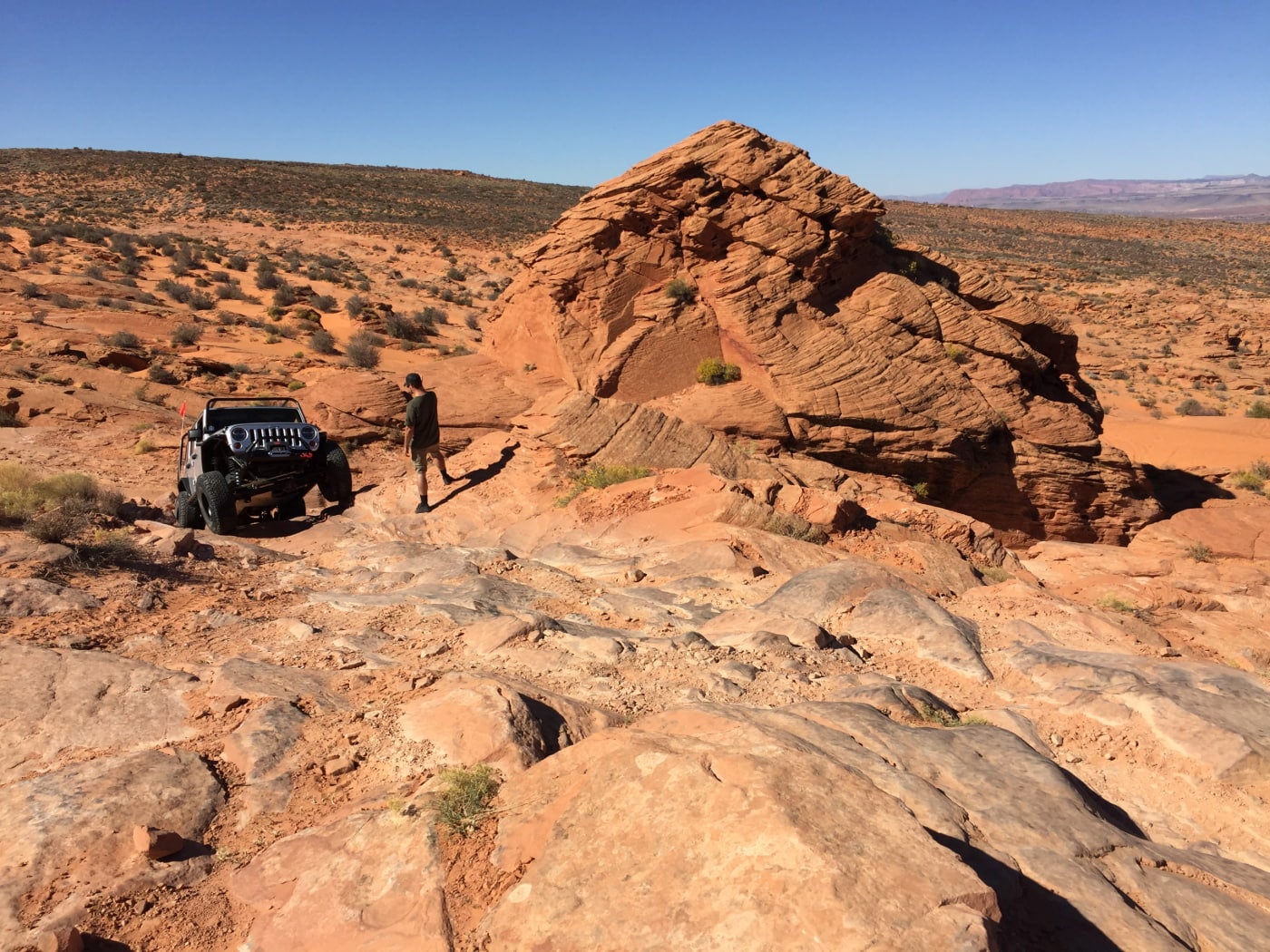
Image from The Dyrt camper Lucy L.
Despite being a self-proclaimed Utah enthusiast, all too often I often come across photos of places and think, “That exists in Utah?!” Sand Hollow State Park recently sparked that question for me. Sure enough, about 15 miles northeast of St.George, one of the newest additions to Utah’s State Park system creates a playground for ORV-enthusiasts, anglers, hikers, equestrians, and mountain bikers.
Each of the campgrounds on the BLM land operates on separate fee systems: a full hook-up at Westside Campground costs $38, Sandpit campground offers partial hookups ($35), no hook-ups ($28), or a group site for $95. Finally, there’s primitive camping on the surrounding area for $25 per night.
“This is a very unique State Park, it’s a campground, it’s a lake, it’s a sand dune and it’s hardcore rock crawling trails. This review is for the campground that has full hookups and is primarily for boaters, as in, no OHV allowed.” —The Dyrt camper Michael J.
2. Red Cliffs Campground — Red Cliffs Conservation Area
One of the more primitive southern Utah camping options on this list, Red Cliffs Campground, located in Red Cliffs Conservation Area, is run by the BLM and costs the standard $15/night. There are eleven sites that operate on a first-come first-serve basis, each of which has a shaded picnic area, running water, and a fire pit.
Our campers comment on how secluded the area feels, even though it’s not far from the freeway. There are opportunities for hiking, rock climbing, rappelling, and spotting dinosaur tracks.
“Really love this campground! It’s small but nice. Good distance between sites and it’s a really beautiful place with great hiking.” —The Dyrt camper Natalie B.
3. Coral Pink Sand Dunes State Park — near Kanab, UT
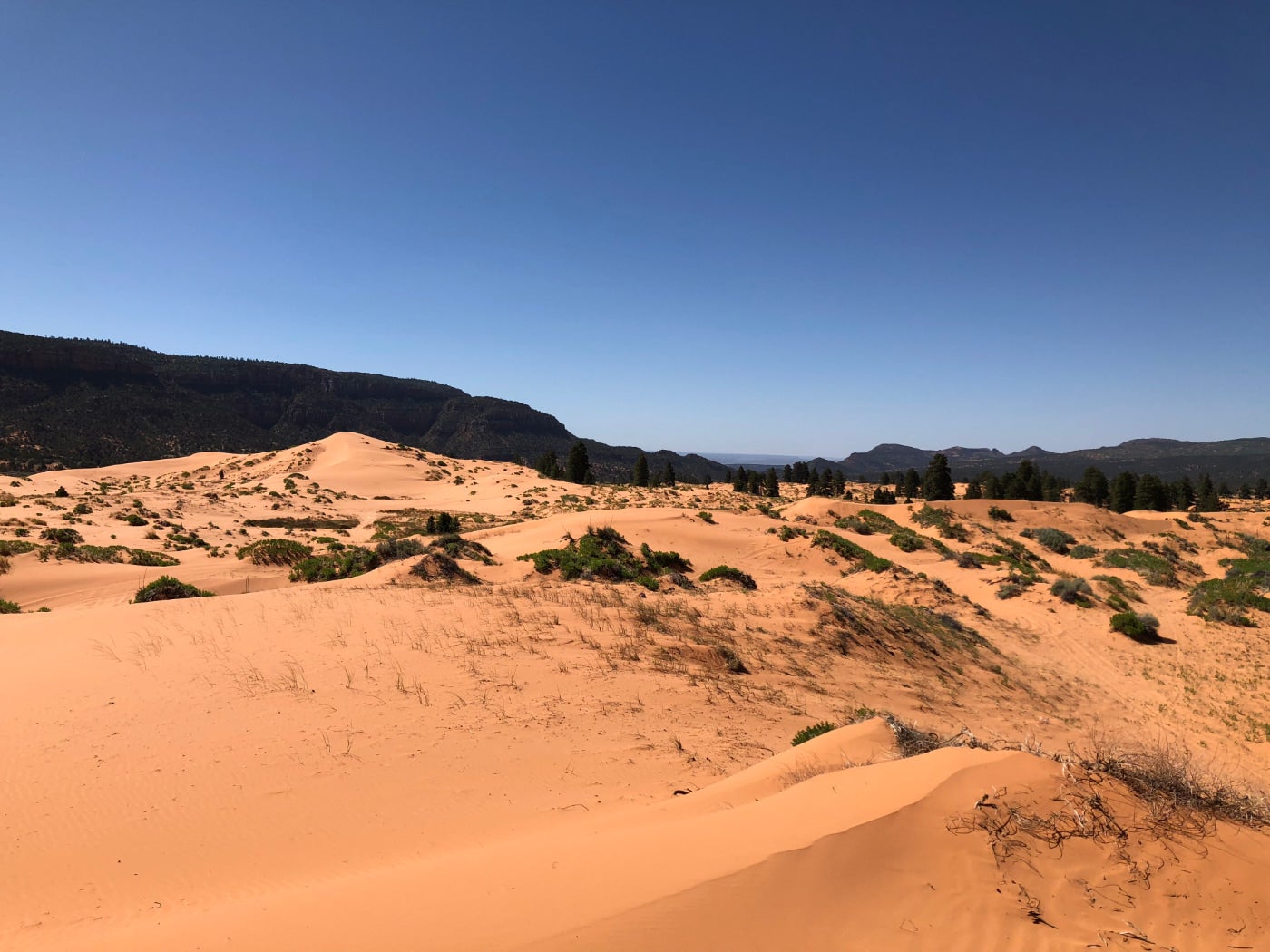
Image from The Dyrt camper Elizabeth R.
Did we save the best of southern Utah camping for last? Maybe. Created by a geologic phenomena called the “Venturi Effect,” Coral Pink Sand Dunes State Park is a shifting sea of red and pink sand . dunes surrounded by the Moquith and Moccasin Mountains. Slowly eroding sand from the Navajo Sandstone is carried through a mountain pass to create these pink dunes which can move up to 50 feet per year.
Entrance to the park is a short walk from the campground, which offers sites for $20/night. Campers have easy access to clean showers and bathrooms, and some of the friendliest hosts in the camp system.
“Coral pink sand dunes is a really cool place. Coming from the east coast, I’ve never seen anything like it. The sand dunes are incredible and my pictures don’t do them justice.” —The Dyrt camper Elizabeth R.
4. Devils Garden — Arches National Park
As the only campground in Arches National Park, Devils Garden sees an uptick of visitors during the busy summer months, if you visit during the week in the middle of winter, though, you’ll likely have most of the campground to yourself. There are no resources at Devils Garden, so make sure to stock up on water, food, and wood before making the 22-mile drive to the center of the park.
You won’t find cell service, but you will find respite.
“My favorite part about camping here was how far away from everything it feels. The stars are crazy here. Also the hiking around is awesome. Even for those of you who aren’t avid hikers, there are some cool shorter trails.” —The Dyrt camper Sam M.
5. North Campground — Bryce Canyon National Park
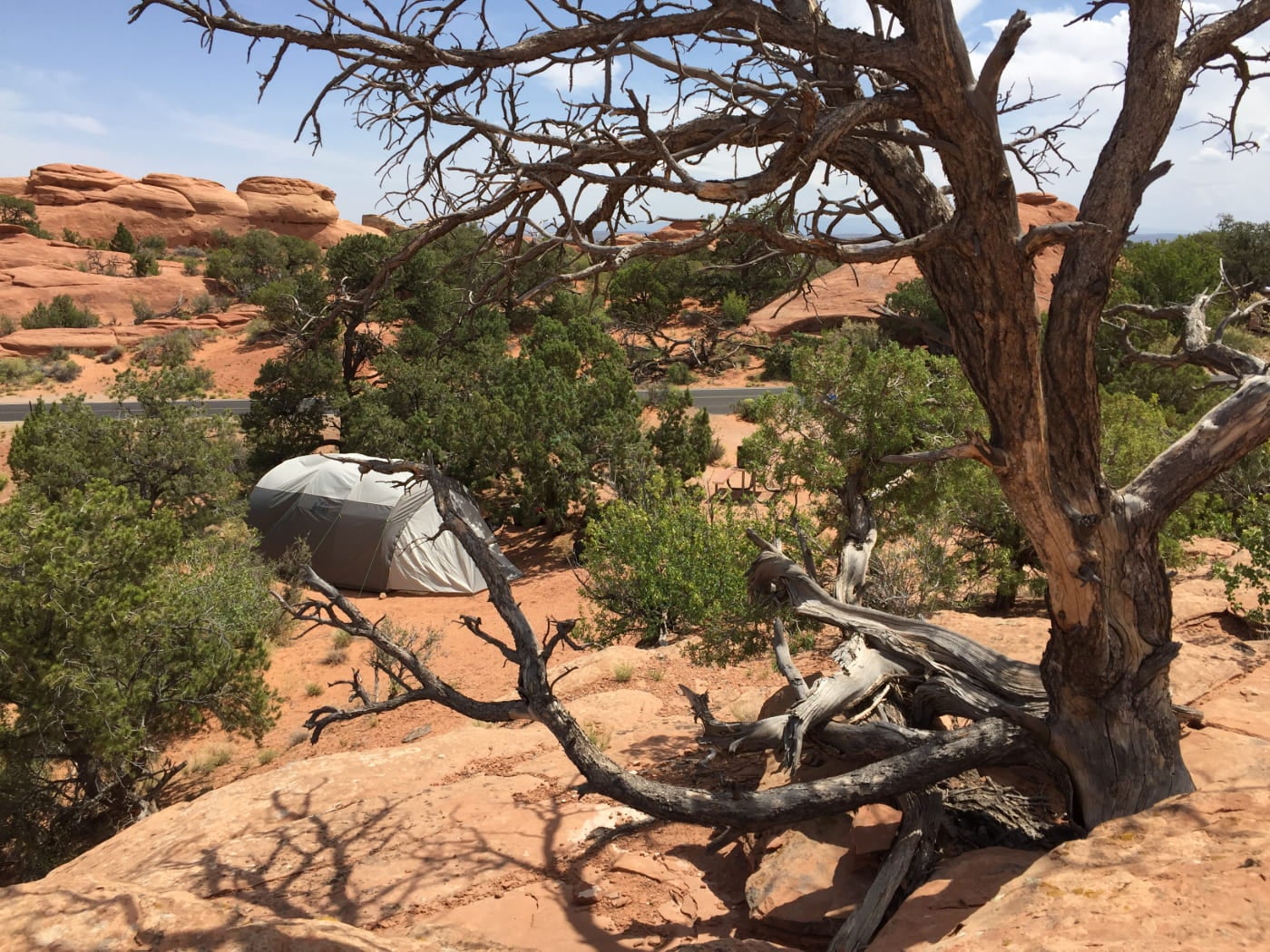
Image from The Dyrt camper Dawn W.
Located inside Bryce Canyon National Park, North Campground offers campers easy access to hiking trails, the visitor center, and bathrooms. Most sites here are first come, first serve, and fill up quickly in the winter and summer months. Make sure to arrive early in the morning to secure a site, then head out on The Rim Trail, easily accessible from the campground.
It’s possible to access the entire park by foot from North Campground if you’re up for the challenge.
“Loved this campground! It was clean, great views, close to trails and easy bus system! The hoodoos are so neat- it was nice to see them at all times of the day and against the brilliant night sky!” —The Dyrt camper Molly G.
6. Dead Horse Point State Park — near Arches and Canyonlands National Parks
Known for the iconic Horseshoe Bend seen and loved by millions on social media, Dead Horse Point State Park remains a popular stopover between Arches and Canyonlands National Parks.
Each campsite is equipped with a tent pad and shaded picnic area to protect you after a long day in the sun. There are both electric and non-electric sites for RVers looking for a hookup. Since the campground sits right on the edge of the canyon, a short walk from your site will put you on the brink of stellar views.
“The views, sunrise, and sunset are amazing from the site or from just down the road at the overlook. On the first morning I was greeted with the bright glow of red when I stepped from our trailer, it was breathtaking.” —The Dyrt camper Bruce P.
7. Sunset Campground — Bryce Canyon National Park
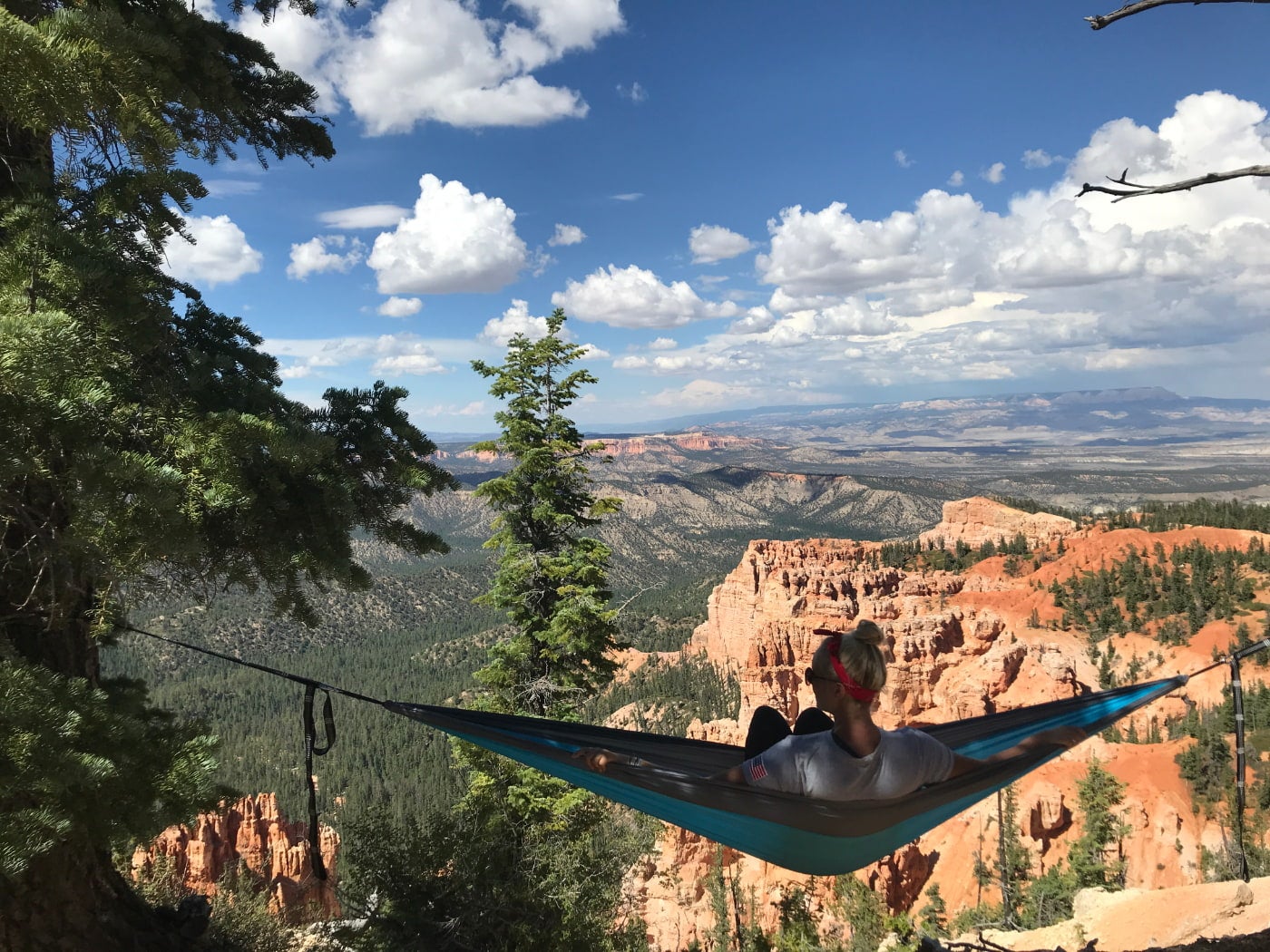
Image from The Dyrt camper Alexis P.
Roughly 1.5 miles south of North Campground, Sunset Campground offers similar amenities—easy access to hiking, and operates on a first-come, first-serve basis. Showers aren’t available at Sunset, though, so if that’s important to you, try North Campground first.
If you’re pitching a tent, make sure to follow all the rules when doing so. The Dyrt camper Megan M. set up her tent and went for a hike, “We returned to a notice that our tent was outside the 20 feet radius of the campfire and therefore threatening the plant life.”
“Friendly hosts, clean sites, clean restrooms, and the park’s shuttle bus stops at the campground. Great place to start a bike ride and hike the great Bryce Canyon!” —The Dyrt camper Colette K.
8. Watchman Campground — Zion National Park
It’s no secret that camping in southern Utah and its national parks involves putting up a fight to book a spot. Even though sites open up to four months in advance, it’s a mad dash in that first hour to reserve your site. From November to February, sites at Watchman operate on a first-come, first-serve basis, which means leaving that extra hour earlier Friday morning could not only pay off for beating the crowds on your hike, but could also nab you the last campsite in the lot.
At Watchman, you’ll have epic views, clean toilets, and easy access to the park entrance—as well as the shuttle that reaches most of the notable aspects of the park (you’ll need to board to visit Angel’s Rest and The Narrows during high season).
“Settling into the site it was laid out pretty well with standard amenities, the bonus to this site is the restrooms are heated, much needed on those cold windy mornings.” —The Dyrt camper Crystal C.
9. Zion River Resort — near Zion National Park
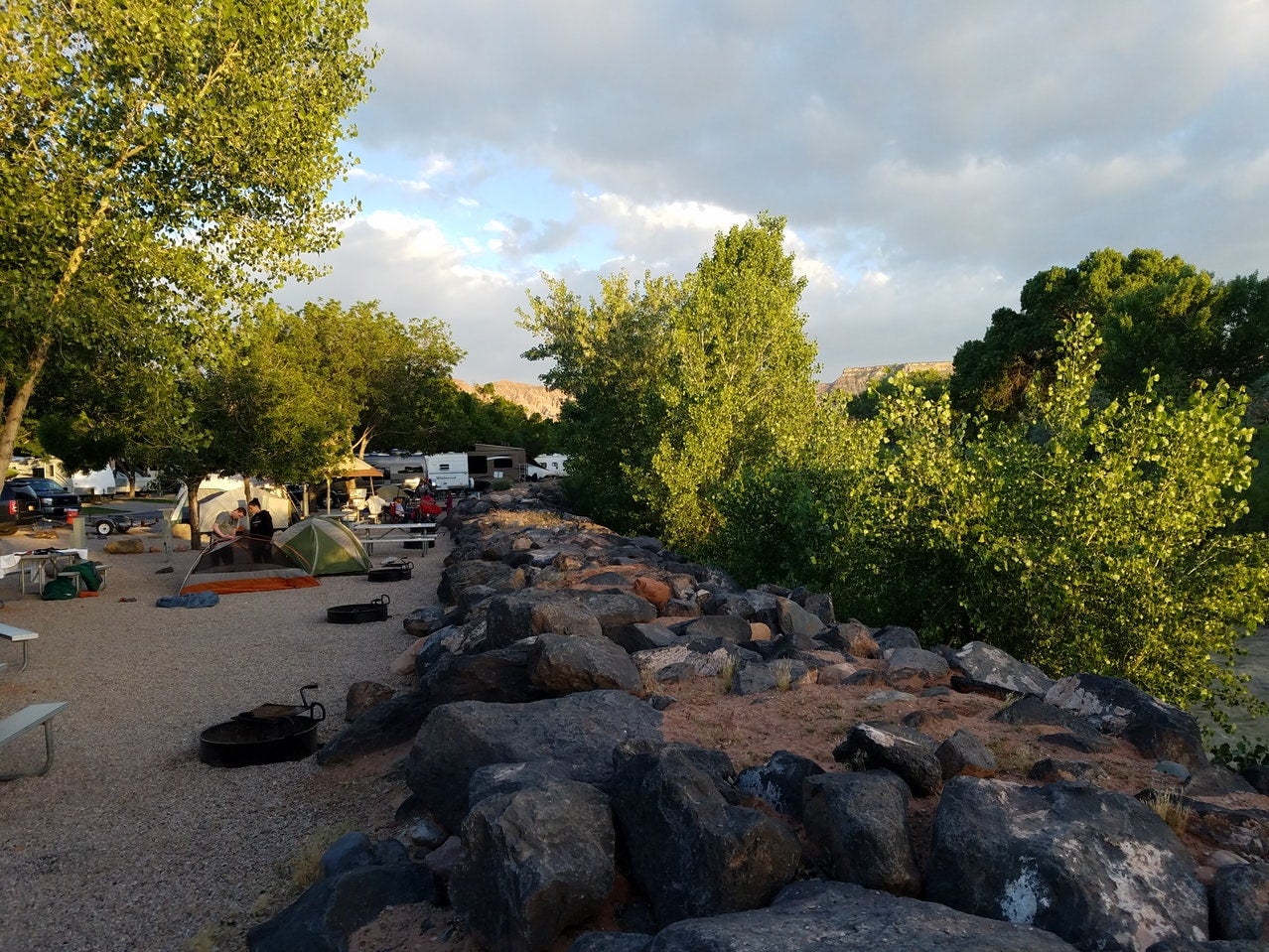
Image from The Dyrt camper Danielle S.
Zion River Resort is a resort. Full stop. Which means it’s southern Utah camping with full amenities like a dog park—with river access—a laundromat, 2-bedroom suites, a game room, playground, swimming pool, and monthly discounts the longer you stay. Plus, it’s right outside one of the world’s greatest playgrounds (Zion), with easy access to the North Rim, Castle Breaks, and Bryce Canyon.
All sizes of motorhomes are welcome at Zion River Resort, up to 70 feet in the pull-through sites. There’s enough room to store your toys when you’re not zipping around the jagged roads and ORV trails throughout the desert southwest.
“This campground was spectacular. I highly recommend staying here. the staff was great, everything was very clean. On weekends they have a grill and serve dinner. Their pool & hot tub area is clean and very nice. despite being in the desert, there’s grass and it’s a very pretty campground.”–The Dyrt camper Emily B.
10. Fruita — Capitol Reef National Park
By far the most underrepresented of Utah’s national parks, Capitol Reef offers one of the most unique experiences of the southern Utah national parks–it’s home to the Waterpocket Fold, a literal wrinkle in the earth, that extends over 100 miles. Staying at Fruita gives campers immediate access to not only this geological anomaly, but also hundreds of miles of hiking through canyons, cliffs, and bridges.
Camping in southern Utah is notably easier at Fruita, as sites won’t immediately be booked after being released online. You’ll still want to plan ahead, though, just in case you hit a peak of popularity. The campground sits next to an apricot orchard, making for an extra special treat after a long trek.
“Unless you’re going deep into Canyonlands backpacking or are canyoneering in Zion it’s hard to find peace and quiet like you can at Capitol Reef National Park. The hikes in the park are quite long and reach hidden cowboy hideaways like Cassidy Arch. The driving loop is also nice if you have limited time and want to see the entire monocline.” —The Dyrt camper Alan B.
Related Campgrounds:
- East Canyon Camping, Morgan, UT
- Green River Campground, Dinosaur National Monument, UT
- Sand Hollow Camping, Sand Hollow State Park, UT
- Navajo Lake Camping, Dixie National Forest, UT
Related Articles:
The Dyrt is the only camping app with all of the public and private campgrounds, RV parks, and free camping locations in the United States. Download now for iOS and Android.Popular Articles:
Articles on The Dyrt Magazine may contain links to affiliate websites. The Dyrt receives an affiliate commission for any purchases made by using such links at no additional cost to you the consumer.

